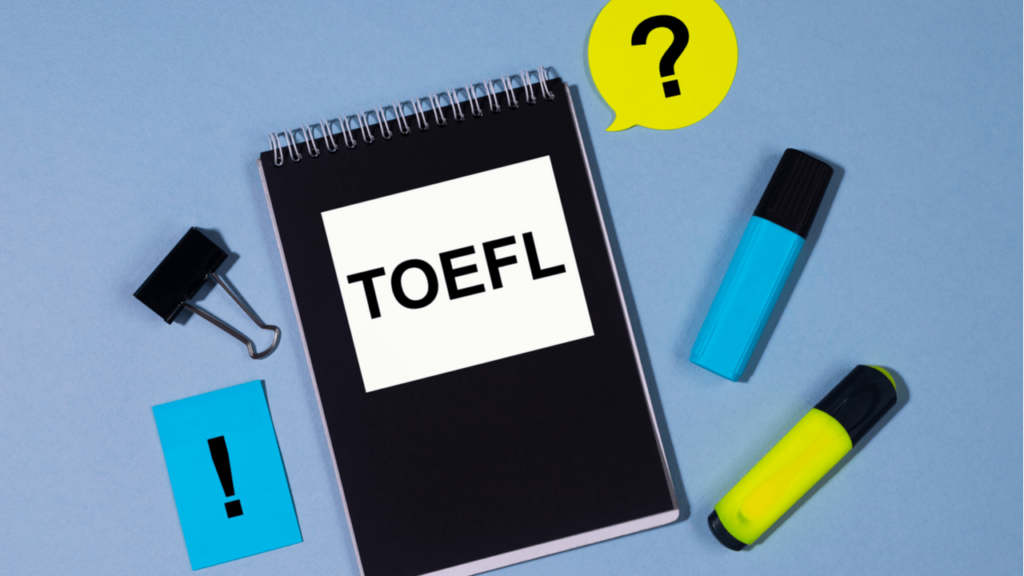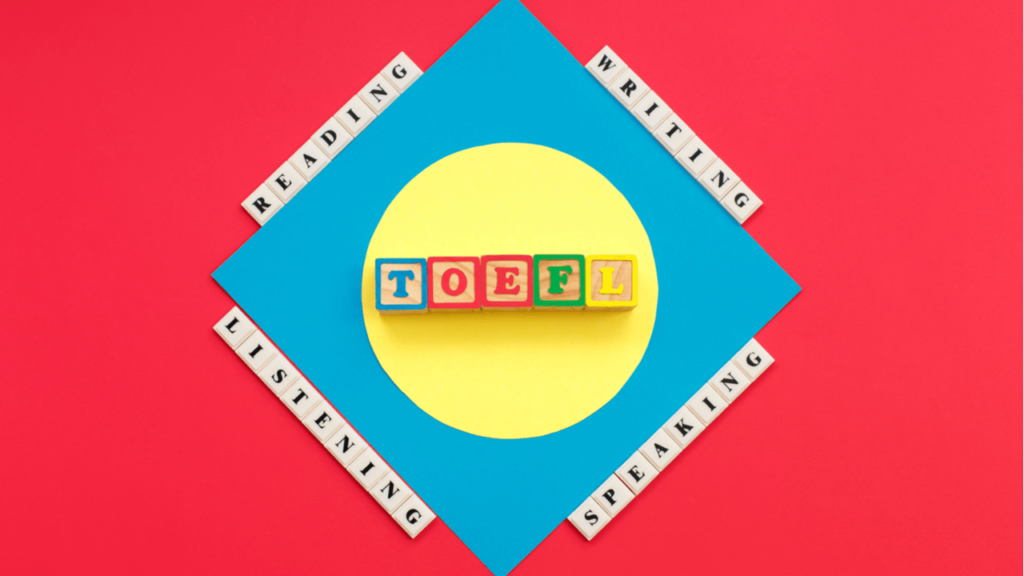In order to succeed in the speaking section of the TOEFL, one must be well-prepared. The speaking section requires speakers to create high standard responses in real-time, which can be quite challenging. Using a TOEFL Speaking Templates can make candidates ready for anything the test throws at them. This article presents some practice templates that can help individuals to master the different types of speaking tasks faced on test day.

Types of TOEFL Speaking Task
The goal of the TOEFL speaking section is to see whether one can listen and respond. There are two different categories of questions in this section –
- Question 1 – TOEFL speaking independent task
- Questions 2, 3, and 4: TOEFL speaking integrated task
Choose your dream country
When do you want to study abroad?
What's your highest level of education?
Select you current city
How Leap will help you
Personalised University Shortlist
Express Applications with Quicker Admits
End-to-End Application Support
The first task is a general knowledge quiz, whereas the second one includes listening, speaking and reading sections.
TOEFL Speaking Templates for Practice
All sections of the Speaking section requires candidates to demonstrate their ability in either integrated or independent speaking tasks. One can expect to see questions like describing a familiar topic, discussing an academic course topic, or giving opinions on a campus situation. To begin preparing for this section of the test, one must read through each task carefully and understand its meaning in terms of what they will have to do, & refer to the TOEFL speaking templates for practicing.
1. TOEFL Speaking Task 1 – Independent Task
In these questions, candidates will be asked to decide between two options. They can choose any option but must support the choice with reasons. It is okay to prefer one over the other until it is backed with precise supportive facts and reasons. Candidates may encounter the following question types –
- Agree or Disagree - To what extent does one agree or disagree with a statement? If an individual is asked such a question, the goal should be to back his or her belief with reasons.
Example: Do you agree or disagree with the following statement? With the advent of entertainment-focused technology, fewer books are read by people than before.
- Preference - Would you rather choose an A or B, and why? These questions do not always ask about imaginary situations, but they do ask which option you prefer and why. Nevertheless, the choice should be backed by reasons.
Example: Would you rather be rich or poor, and why?
- Description and Explanation - What are your thoughts on this issue, and what evidence do you have to support them? Explain why. These types of questions must be read carefully to understand what to talk about and keep it as relevant as possible.
Example: People sometimes undergo surgical procedures to enhance or alter their appearance. They do this to become more attractive to others. Do you think this is a good idea?
- Advantages and disadvantages - Discuss the pros and cons of an issue, then pick a side. Here, candidates must state both sides of an argument and then show why one is better than the other.
Example: Many students are asked to evaluate their professors at the end of the semester. What are the advantages and disadvantages of this?
- Three Choices - Potentially, this question type will provide you with three separate choices to select between. Select one, and back the decision with reasons
Example: Which of the following impacts environmental protection greatly? (1) Individual effort (2) Governmental regulations (3) Environmental awareness groups.
- If/Imaginary - An "If or imaginary" question asks to imagine a situation and then decide how one would feel or what one would do based on the situation.
Example: Would you spend your money right away or save it? Use details and examples to support your choice.
The table below represents a TOEFL Speaking Templates format for independent Speaking task 1:
[table id=313 /]
2. TOEFL Integrated Speaking Task 2
In this task, candidates will be asked to read a passage related to campus life and then listen to a conversation about the same topic. Finally, a speaking prompt will ask them to summarize or outline an opinion or concept from the provided material. The table below provides a template for answering similar questions, and this is based on a municipal announcement.
[table id=314 /]
3. TOEFL Integrated Speaking Task 3
For this task, you'll need to read a passage and then listen to a lecture on the same topic. However, the topic will introduce some new terms or ideas. Those who complete this task successfully will be able to use both the reading and lecture to illustrate the concept that was introduced in both sources, tying both together in their response by repeating things they just heard or saw. The table below represents a template for this Task 3 with a specific transition from a generic transition.
[table id=315 /]
4. TOEFL Integrated Speaking Task 4
In this task, candidates will hear an academic lecture on a specific topic related to psychology or biology. Further, it can be about the human brain or human development. Then, candidates have to summarise the audio content in a few sentences. The table below represents the template based on an academic lecture.
[table id=316 /]
With the knowledge gained on the various templates of the speaking section, one may question why to use these templates for practicing.
Benefits of TOEFL Speaking Templates
Although one can never predict the questions asked in the TOEFL speaking section, these templates can help them practice easily. Apart from that, other benefits are as follows –
- Versatile - One can use templates in a variety of ways to respond to questions. Even when one is unsure about the next question, the response can still fit seamlessly into the template.
- Blend In - Native speakers of a language use templates while speaking, which can help them organize their thoughts or allow them to pause briefly before continuing.
- Tried and True - By practicing templates, candidates will be able to use them with ease and comfort during the test. Further, they can feel more confident using phrases that are already familiar to one while speaking.
- Crystal Clear - When an individual uses a template to organize his or her thoughts while speaking, listeners can follow their ideas from one place to another.

When it comes to the Speaking section of the TOEFL test, many test-takers may feel confused and uncertain about what to expect. Many students find that there are so many different types of questions on the TOEFL. But, after studying all aspects of the Speaking section and breaking down each task into smaller parts through the TOEFL Speaking templates, candidates can be prepared for whatever question types show up on test day. Studying examples of these templates will help one understand how to effectively tackle these types of questions and help them score higher.
Frequently Asked Questions
[faq-schema id="9534"]















Have Questions? Get Guidance to reach your Dream University
Connect with India's finest counsellors and biggest study abroad community.
Get Guidance